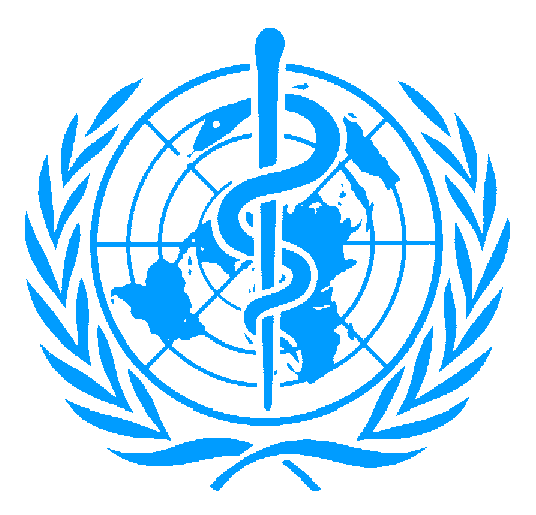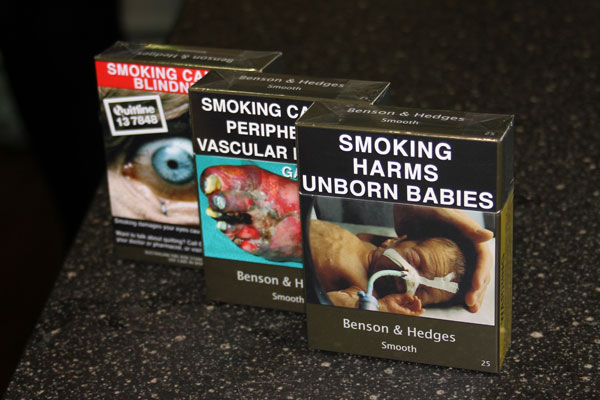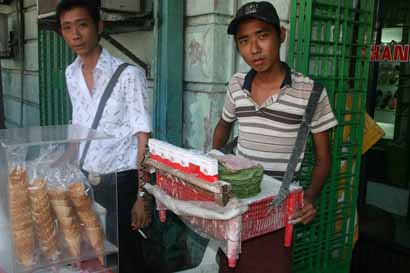About 4.6 billion contraband cigarettes are sold in Greece every year, ‘costing the state €600 million (US$741 million) in lost taxes,’ according to a story in the Greek Reporter quoting a conference report.
The conference was said to have involved Transparency International, the General Secretariat on Corruption, Europol, the Economic Crime Unit of the Hellenic Police (SDOE) and other organizations. There was no mention of when or where the conference took place.
According to estimated figures presented at the conference; for every container of smuggled cigarettes, about €2 million are ‘lost from taxes and duties’.
Taken together, all EU member states are estimated to ‘lose a total €11 billion every year’ to the illegal trade in tobacco.
In crisis-stricken Greece, the Greek Reporter piece said, contraband cigarettes were particularly prevalent.
It had been stressed during the conference that higher taxes and shrinking incomes had made Greece a lucrative field for international criminal rackets and Greek smugglers.
According to Greek law enforcement authorities, one in five cigarette packs on the Greek market are illicit. And Greek Customs said that about 142 million smuggled packs of cigarettes were seized in 2017.
Category: People

Illegal trade 'prevalent'

Zimbabwe disease alert
Concerns have been raised in Zimbabwe about the resurgence of Potato Virus Y in tobacco, according to a story in The Herald.
PVY, a viral disease that is said to have been under control for some years, has apparently resurfaced, and tobacco growers are being blamed.
The government has urged tobacco growers to follow regulations on destroying stalks and crop residues to avoid the spread of pests and diseases.
The Minister of Lands, Agriculture and Rural Resettlement, retired Air Chief Marshal Perrance Shiri, made this call during a familiarization tour of the Kutsaga Research Station on Tuesday.
Shiri said some growers had been witnessed failing to destroy stalks and crop residues in a timely manner and others had been witnessed not destroying stalks completely. “Now, we end up with these challenges,” he said.
“We need to change the way we do things. We need to be responsible. We had grown a viable industry, which contributes immensely towards the economy of this country and in particular earning foreign currency. We seem to be gradually destroying the industry through the failure to comply with legislation of destroying stalks.
“I call upon farmers to be responsible. It is our responsibility, all of us, to look after the industry that has sustained us. It is there to sustain the economy of the country,” he said.
Zimbabwe’s Plant Pests and Diseases Act requires that tobacco farmers destroy tobacco stalks on or before May 15.
Tobacco Research Board general manager Dr. Dahlia Garwe also expressed concern over the disease, which she said had the potential significantly to affect tobacco production in Zimbabwe.
“We are extremely concerned about the incidence of the PVY,” Garwe said. “Our farmers have for a number of years ignored the legislation that was put in place to keep PVY on check. “Now we are starting to reap the ‘benefits’ of our sins. The fact that we have failed to observe the legislation has meant that we are now seeing an outbreak of a disease that has been under control.”
Garwe was quoted as saying that tobacco farmers were now growing crops of potato, tomato and pepper on the same land on which they grew tobacco. “The crops have the same pests and diseases, so if a tomato crop has been affected by PVY, that disease will also move into tobacco,” she added.
Increasing tobacco control
Sierra Leone is set to accelerate its tobacco control efforts with the help of the World Health Organization, according to a story in the Journal du Cameroun quoting a Ministry of Health and Sanitation (MoHS) official.
Dr. Alie Wurie, director of the MoHS’ Non-communicable Diseases department, said the ministry was poised to make tobacco control a national priority through legislation and education.
Wurie’s announcement was made in the context of a new WHO initiative designed to help countries fast track the implementation of the its Framework Convention on Tobacco Control (FCTC).
Sierra Leone is among 15 low- and middle-income countries selected to benefit from the UK-funded FCTC 2030 project, which seeks to reduce tobacco consumption.
The MoHS estimates that there are 40,000 tobacco users in the country, and that smoking prevalence is on the rise, particularly among men and young people.
The Journal reported yesterday that technical experts from the FCTC 2020 project were in Freetown and that on Tuesday they held a national meeting with stakeholders on the FCTC 2030 project.
Andrew Black, development assistance team leader with the FCTC 2030 secretariat in Geneva, said tobacco not only stole lives; it exacerbated poverty, damaged the environment and created immense burdens on national health systems.
Dutch reinforce ban
A Dutch court yesterday upheld an appeal by anti-cigarette campaigners by disallowing a tobacco-smoking-ban exemption that had allowed separate smoking areas to be set up in cafés and bars, according to a MedicalXpress story.
A general ban on smoking in restaurants, pubs and bars was introduced in the Netherlands in 2008, but, under the exemption, cafes smaller than 70 square metres (753 square feet) were allowed to set aside areas for smokers behind floor-to-ceiling glass partitions.
These areas had to be less-attractively decorated than the rest of the café, and no food or drink could be served inside.
Even so, more than 25 percent of small cafés in the Netherlands include such spaces.
But the court in The Hague found that such spaces were ‘in conflict’ with the World Health Organization’s Framework Convention on Tobacco Control, which the Netherlands signed and which entered into force in 2005.
‘The tobacco laws banning smoking also cover smoking rooms, the court ruled, adding therefore the exception to the legislation was ‘invalid’.
Clean Air Netherlands (CAN), which had appealed after losing an earlier case in 2016, said it was ‘happy and satisfied’ with yesterday’s ruling.
It said its mission was to strive for a smoke-free society by discouraging tobacco use. ‘Smoking-rooms do not belong with this; therefore this is a small step in the right direction,’ it said in a note on its website.
It was not clear when or if the smoking-rooms would be closed, because there could be a further appeal, Dutch media was reported as saying.
The court threw out CAN’s claim that the ban covered all indoor public smoking spaces, saying it had not provided sufficient evidence.
Czechs rethink ban
Eighty-six deputies from eight parties in the Czech Republic’s lower house have put their signatures to a proposal to loosen a ban on tobacco smoking at Czech pubs, restaurants and some other facilities, according to a Radio Prague story.
The ban was introduced last year.
The amendment, proposed by Marek Benda of the Civic Democrats, envisages the creation within these venues of separate smoking areas with their own ventilation systems.
Benda’s proposal would allow bars with an area of 80 square meters or smaller to decide themselves whether to allow smoking or not.
The smoking ban came in at the end of May, bringing the Czech Republic into line with many other EU states.
Illicit factory raided
Authorities in the Philippines have closed a factory in Bulacan that was manufacturing fake Philip Morris and Mighty cigarettes, according to a story in The Philippine Daily Inquirer quoting the Finance Secretary Carlos G. Dominguez III.
Dominguez told reporters that with the increase in prices of cigarettes under the Tax Reform for Acceleration and Inclusion (TRAIN) Act, the government was on the lookout also for smuggled cigarettes.
“Since we raised cigarette prices, obviously there will be more incentive to smuggle, so we have to watch out,” Dominguez said.
Under the TRAIN Law or Republic Act No. 10963, the unitary excise tax imposed on cigarettes rose from P30.00 a pack to P32.50 a pack, effective January 1.
On Thursday, joint operatives of the Philippine National Police-Criminal Investigation and Detection Group and the Business Permits and Licensing Office of Guiguinto, Bulacan, raided a cigarette factory manufacturing fake cigarettes.
Initially believed to be a warehouse for illicit cigarettes, the facility was found to have a counterfeit factory at the back of the site, Dominguez said.
A Philip Morris report was said to have indicated that the inspection had resulted in the discovery of two cigarette makers, one cigarette make-pack line, hand-packing and sealing equipment, and boxes of fake tax stamps. Also discovered were boxes of filter rods, packaging materials, cut fillers, empty master cases, filter papers and other raw materials.
The authorities held one Chinese national identified as the wife of the owner of the business, and more than 70 factory workers who reportedly were all from Mindanao.
Another illicit factory was discovered in Bulacan at the end of November after it was destroyed by fire.
Considering plain packs
The Turkish government is considering introducing standardized packaging for tobacco products, according to a story in The Hurriyet Daily News quoting the Health Minister Ahmet Demircan.
Demircan did not elaborate but said that details of the planned measures would be unveiled in coming days.
“Cigarette packages should not be easily accessible and they should not make smoking appealing,” he said.
“Packages should not serve as advertisement materials. We have to take necessary measures to prevent this.”
More than 26 million people are said to have called the ‘172 helpline to quit smoking’ that was launched by the Health Ministry in 2010 and some 70 percent of those people stopped smoking, according to the minister.
But in November 2017 he said that while the proportion of tobacco users aged 15 and above had dropped to 26.8 percent in 2012, the rate had increased to 32.5 percent in 2014.
The latest proposed measures follow on from the ruling Justice and Development Party’s (AKP) long-standing anti-smoking crusade, which began with a smoking ban in enclosed public places in 2009.
“You don’t have freedom to commit suicide, so you don’t have freedom to expose yourselves to terminal diseases …,” President Recep Tayyip Erdoğan, who is known for his strong anti-smoking views, said in 2016.
“There can be no such freedom as the freedom to smoke … The state must protect its citizens against tobacco, alcohol and drugs, just as it is obliged to protect them against crimes like theft and terrorism.”
Pressing the vapor case
Philippine vapers say that the latest Public Health England (PHE) report validates their position that vaping electronic cigarettes is far less harmful than is smoking cigarettes, and that e-cigarettes should form part of the country’s tobacco control program, according to a story in The Business Mirror.
The new e-cigarette evidence review, undertaken by leading independent tobacco experts, provides evidence that vaping poses only a fraction of the risks of smoking, and that switching completely from smoking to vaping conveys substantial health benefits. It recommends that e-cigarettes be made available to those who wish to quit smoking.
“Listen to the experts,” said Tom Pinlac, president of The Vapers Philippines. “It is time for the Department of Health to look into this report so that they can recommend e-cigarettes and heated-tobacco products to smokers who want to quit.”
Pinlac said it was an outrage that smokers were denied the proper information about e-cigarettes and heated tobacco products. “Educate smokers about vaping and heated-tobacco products instead of resorting to fearmongering,” he said.
Meanwhile, Edward Gatchalian, president of Philippine E-Liquid Manufacturers Association, said that more than 17 million Filipino smokers could benefit from vaping e-cigs or heated-tobacco products because they were significantly less harmful than was smoking.
“It is said that 87,000 deaths every year are attributed to smoking-related diseases,” Gatchalian said. “Smokers should switch to vaping or tobacco-heated products if they want to kick the habit of smoking. This is a very clear message embodied in the PHE report.”
Vaping controls sought
Anti-smoking groups, said to be alarmed by the rising use of electronic cigarettes in Myanmar, want the authorities to control the sale of these devices.
According to a story in the Myanmar Times, the People’s Health Foundation (PHF) and its partner organizations are planning to submit their proposals to the relevant ministries.
The PHF is concerned that electronic cigarettes are not covered by the current tobacco law.
Among the suggestions that are likely to be forwarded to the government are that the government should control e-cigarette imports, and that these devices should not be sold to anyone under the age of 21.
“We expect our proposals on electronic cigarettes to be submitted to the ministries in February,” said Dr Than Sein, PHF’s president.
Meanwhile, a spokesperson for the Non-Communicable Disease unit of the Department of Public Health was quoted as saying that “electronic cigarettes are harmful to public health as they contain chemical ingredients like nicotine”.
According to a 2014 survey of Myanmar, about 43.8 percent of men and 8.4 percent of women are smokers, while 62.2 percent of men and 16 percent of women are tobacco users.Scholarships on offer
Knowledge Action Change (KAC) and the Global Forum on Nicotine (GFN) have launched the 2018 Tobacco Harm Reduction Scholarship Programme.
In announcing the inaugural program, the GFN organizers said they wanted people to learn from the GFN and have the opportunity to implement that learning in their home countries.
Fifteen scholarships will be offered during the year, with funds available to support agreed projects up to the value of $7,500.
The scholarships will start at the GFN conference on June 13. The conference is scheduled to be held at the Marriott Hotel, Warsaw, Poland, on June 14-16.
The organizers say that the scholarships are intended to:- build research capacity in the field of tobacco harm reduction;
- develop the evidence base;
- raise awareness of research and its implications for public health policy;
- enable consumers to make more informed personal health choices;
- improve the implementation and understanding of tobacco harm reduction.
Applications are invited from people with an interest in tobacco harm reduction; such as:
- people intending to enter the field of research into tobacco harm reduction and/or public health;
- students
- researchers and scientists
- medical professionals
- writers
- Internet and social media professionals.
More information is at: https://gfn.net.co/scholarships









